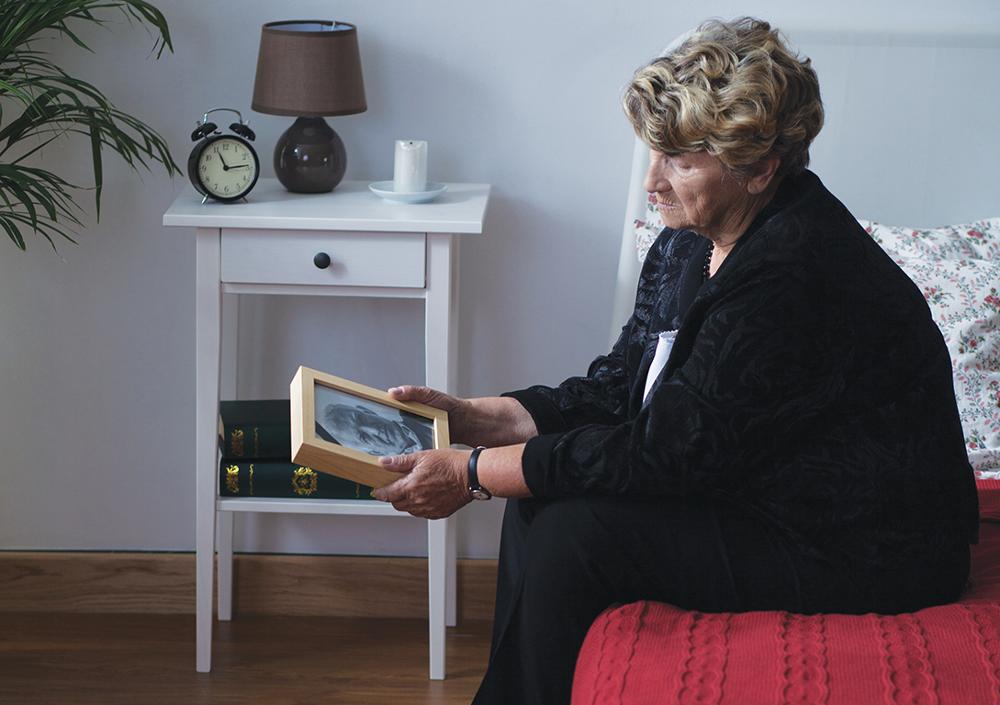(585) 352-1500

The Loss of a Spouse
Whether expected or sudden, young or old, the death of a spouse is one of the most difficult and overwhelming losses one can face. Losing a spouse brings unique challenges and feelings. You have lost your life partner and must cope with realities ranging from organizing finances, to daily life in a home full of memories, to a new identity as a widow/widower.
We are told many things about grief that are meant to help us: It will get better with time. At least she’s in a better place. You need to be strong for your family. Although these statements are meant to be helpful, they rarely are. Grief is more like a rollercoaster than a train track. The reality of grief is that there is no way around it, only through it.
Strategies for Getting Through
While there is no way to avoid the pain of a loss, many people have found the following activities helpful after the death of a loved one.
Acknowledge the full range of feelings. Most of us know to expect sadness, disbelief, or depression after a death. But in reality, there is a wide range of feelings that emerge, and some of them can feel shocking. Relief, anger, guilt, levity, fear, confusion, mania, worry, and withdrawal are just some of the other feelings you may experience. It is important to recognize and allow your full range of emotions, whatever they are. There is no right or wrong way to feel.
Maintain a connection. Continuing a relationship with the person you lost can be a healthy way of coping. Just because your spouse has died, it doesn’t mean that you have lost all connection. Many people find themselves talking to their loved one after a death. This is okay. Talking out loud to your spouse when you are alone, writing letters, or sending emails are ways to give tangible expression to the thoughts and feelings that are racing through your head.
Honor your memories. Maintaining a connection to your loved one may take the form of a ritual or practice that honors the memory of your spouse. Lighting a candle, making a favorite meal, buying flowers, or visiting a special spot you shared are all ways to recognize the important place this person will always have in your heart.
Ask yourself, what would he/she tell me? You knew your spouse better than anyone. What would he/she say to you right now, as you are experiencing your grief? Write a letter to yourself from your spouse, or just imagine a conversation. What would he say about your grief? How would she comfort you? How would he want you to be living?
Find a support group. When you lose your life partner, you may feel utterly alone. While no one can know exactly how you feel, it can be helpful to find other people who have been through a similar loss. Support groups can be a safe place to share feelings that you may not want to share with friends or family. They are also a place to connect with and give support to others.
Make small goals. It is helpful to write down small goals, including things to do or accomplish each day or week. Take it slow and at a pace that is comfortable for you. Writing down these goals helps you feel more accountable and avoid completely withdrawing.
Continue to live. After a loss, it is important to stay connected to the people and things in this world. If other people are too much, consider adopting a pet or starting a garden. Volunteering your time for a cause that is meaningful to you may help you to meet new people and to feel good about your contribution. Eating well and getting exercise are also basic but important things to remember.
For other helpful stories on losing a spouse visit these links:
-
http://www.opentohope.com/how-i-surrendered-to-the-grief-of-losing-my-husband/
-



Comments